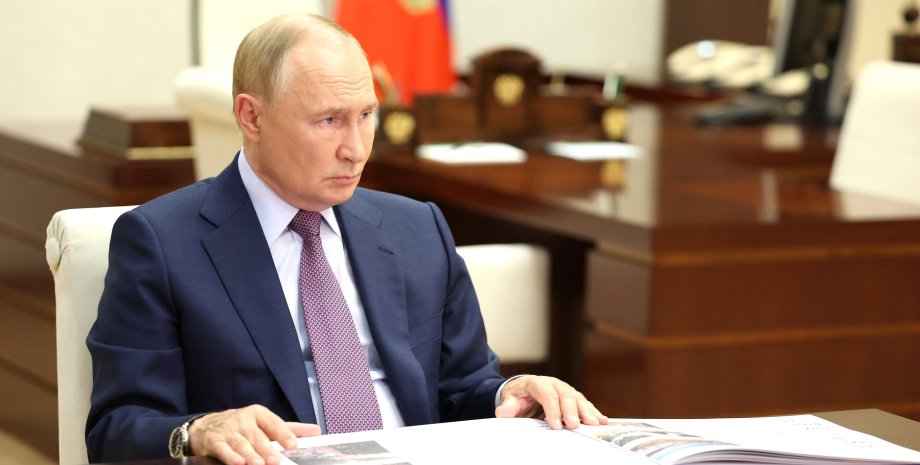
 By Eliza Popova
By Eliza Popova
Two and a half years after the invasion of the Russian Federation into Ukraine, the American strategy from the end of the war in Ukraine remains unchanged: it is enough sanctions that President Vladimir Putin has decided that he has no other choice as soon as the military plans were abandoned. Washington is looking for a balance between Ukraine and sanctions on the Russian Federation, on the one hand, and reducing the risks of escalation on the other.
But, despite all the rationality of this approach, it is based on the assumption that Putin can change his mind. About it writes the American magazine Foreign Affairs. In order not to allow Ukraine to become a bastion that would use the West for the threats of Russia, it sees a strategic need for itself. Putin has taken personal responsibility to achieve this goal and probably thinks it is worth any loss.
The only possible way to complete the war on the conditions acceptable to Kiev and the West is to wait for someone to change Putin at the head of the Russian state. With this approach, it will be possible to keep the front line in Ukraine, maintain sanctioning pressure and reduce the level of combat clashes as long as Putin remains in the Kremlin. Only in this way Ukraine will be able to count on a long -term peace, according to the author of the publication Peter Schroeder.
Now the Kremlin's head has no potential competitors on the horizon. The two, who closest to this role, - oppositionist Alexei Navalny and rebel Yevgeny Prigogin - are no longer alive. And the Kremlin has accumulated over decades for decades, the formation of internal narratives to strengthen power. Putin could stop the war in Ukraine, announce the victory and hold the appropriate information campaign for the Russian audience.
American politicians believed that under sufficient pressure, he could withdraw troops from Ukraine or sit at the ceasefire negotiation table. This calculation is based on the idea of Putin as an opportunist, who goes forward and, when she notices weaknesses, will use them to their interests, but, faced with force, will retreat.
But he is not an opportunist, at least in relation to Ukraine, says the author, although all previous international military campaigns of the Russian Federation were limited. Russian hostilities in Georgia in 2008 were aimed at preventing loss of control over the territory and not allowing Georgia to integrate with the West. When Putin seized Crimea in 2014, he worried about the possible loss of the naval base.
During the Syrian intervention in 2015, he tried not to allow the Russian ally Bashar al-Assad ally. In 2014, after the Ilovay Russian troops, they could pass along the Azov Sea and create a land corridor with Crimea. But Putin also preferred a political decision. Syria had several thousand Russian soldiers, mostly PKS of the Russian Federation. When, in 2019, Venezuelan authoritarian leader Nicholas Maduro could remove from power, Putin sent several hundred soldiers to help him stay in power.
For comparison, more than 100,000 Russian soldiers were already killed in Ukraine, the invasion has caused unthinkable damage to the Russian economy and the country's international position. According to the publicist, during a full -scale invasion of Ukraine, Putin acted in an unusual manner, because he usually carefully weighed the risks.
The decision to send a large part of its army in 2022 to Ukraine, and then mobilize the military, when the initial offensive failed, indicate that it considers this war too important to lose. According to Peter Schroeder, for Putin, the price of inactivity would probably be higher. He would not be able to prevent the emergence of the Union West of Ukraine, which would later serve as a springboard for the "color revolution" in the Russian Federation itself.
Peter Schroeder sees two of the possible options for the end of the war: either Russia will lose the opportunity to continue it, or Putin will no longer be in power. The first is unlikely. Russian armed forces are unlikely to fall apart, since a large part of Russian resources, including human resources, is invested in the war.
In order to be defeated by the Armed Forces of the Russian Federation in Ukraine, it will be necessary to significantly increase the production of ammunition, but only in 2025 the United States will expand the production of shells. However, even this will not be enough to close Ukraine's needs for artillery shells, not to mention air defense. Ukraine needs soldiers for defense war, Western countries agree to help with training, but to throw their own strength are not ready.
There is only one way to end the war: Putin comes from the Kremlin. To accelerate this is an idea attractive but impractical. Washington has not been able to influence Russian policy for decades. If the US is trying now, the Russian Federation may in response to strengthen its attempts to bring chaos to American society. Washington only has to wait and help Ukraine hold the line, preventing further Russian promotion.










All rights reserved IN-Ukraine.info - 2022